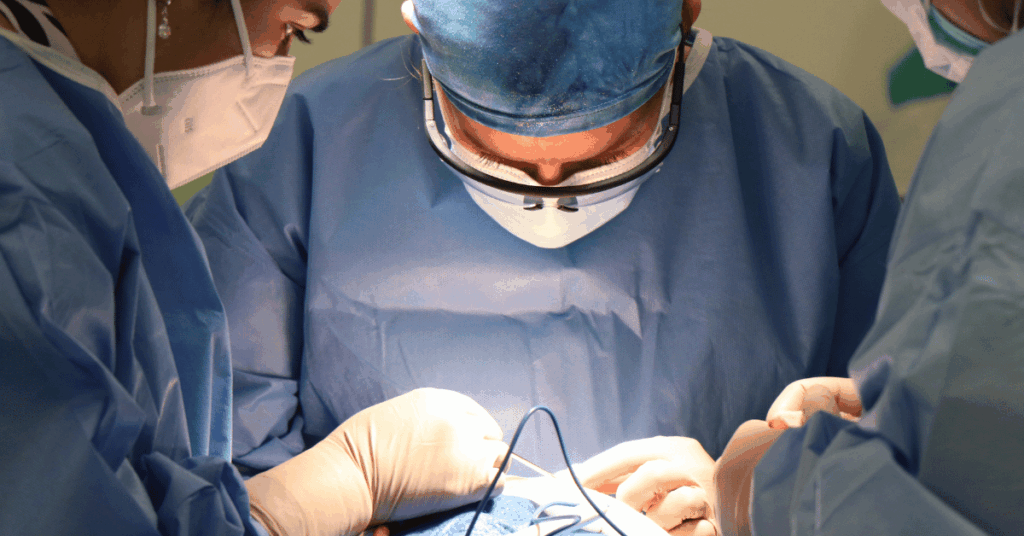
Gastric revision surgery gives patients a renewed opportunity to reach their weight loss goals after an initial bariatric procedure. Sometimes, the first surgery doesn’t deliver the desired outcomes, or complications arise later. This detailed guide will help you understand what gastric revision surgery is, who qualifies for it, the potential benefits and risks, how to prepare, and how to maintain long-term results.
What Is Gastric Revision Surgery?
Gastric revision surgery refers to a follow-up procedure that adjusts or replaces an earlier weight loss surgery. When the original procedure fails to produce expected results or causes unwanted side effects, revision surgery can correct the issues and help restart the weight loss journey. It’s not a repeat of the same process but a tailored solution that builds on past experience.
Why Some Patients Need a Second Surgery
There are several reasons why people may require a second weight loss surgery. First, many patients experience weight regain after their initial success, even when following prescribed guidelines. Second, some never achieve the expected weight loss in the first place, which leads to frustration and discouragement. Third, complications such as acid reflux, vomiting, or nutritional problems may appear over time. Lastly, changes in health or lifestyle can alter how the body responds to the initial surgery. All these scenarios can make gastric revision surgery a necessary next step.
Common Types of Gastric Revision Procedures
Gastric revision surgery varies depending on the type of original procedure and the issues the patient is experiencing. For example, those who had a gastric band often benefit from converting to a gastric sleeve. Others who had a gastric sleeve may need to move on to a gastric bypass for better results. In some cases, patients with a previous gastric bypass may require adjustments, such as reducing the size of the stomach pouch or changing the length of the intestinal limbs. For more complex cases, a conversion to a duodenal switch may be appropriate. The choice depends entirely on the patient’s health, goals, and surgical history.
Key Benefits of Gastric Revision Surgery
There are many advantages to undergoing a revision. First and foremost, it offers another opportunity to achieve significant weight loss. Patients who did not lose enough weight or regained it after the first surgery often find that a revision helps them regain control. Additionally, many health conditions improve as a result of the second procedure. For example, type 2 diabetes, high blood pressure, and sleep apnea often show marked improvement following revision. Finally, many patients experience relief from physical discomfort, such as persistent acid reflux or nausea, once the revision corrects the underlying problem.
Are You a Good Candidate?
Not everyone who has undergone bariatric surgery qualifies for a revision. You may be an ideal candidate if your weight loss has stalled or reversed, if you’re experiencing chronic side effects from the first surgery, or if medical imaging shows structural problems. However, commitment matters. You need to demonstrate that you’ve maintained healthy habits and are emotionally prepared for another surgery. Most importantly, you must have realistic expectations. The revision is not a magic fix—it requires just as much dedication as the first operation.
Preparing for Your Gastric Revision
Proper preparation can make all the difference. Start by scheduling a complete medical evaluation. Your surgeon will review your surgical history, order lab work, and possibly recommend imaging like an endoscopy to check for complications. Next, you’ll meet with a dietitian to assess your nutritional habits and guide your new eating plan. Psychological support is also crucial, so expect to consult with a mental health professional. You may be asked to lose a small amount of weight, stop smoking, or adjust your medications before surgery. These steps reduce surgical risks and improve recovery outcomes.
What Happens During the Procedure?
The specific technique used during gastric revision depends on the prior surgery and the current issue. Most revisions today are performed laparoscopically, meaning the surgeon uses small incisions, a camera, and specialized instruments. This minimally invasive approach leads to faster healing, reduced pain, and fewer complications compared to traditional open surgery. The procedure typically lasts between two to four hours. After surgery, most patients remain in the hospital for one to three days, although this may vary based on individual progress.
Recovery Timeline and Tips
Recovery from gastric revision surgery occurs in stages. In the hospital, nurses will monitor your vital signs and manage your pain. Walking as soon as possible is encouraged to prevent blood clots. Once you return home, you’ll follow a liquid and soft food diet for several weeks. You’ll also need to take vitamin supplements, attend follow-up appointments, and monitor your hydration levels. In the long term, you’ll transition to solid foods, gradually increase physical activity, and learn to manage stress and emotions without turning to food. Building these habits is essential for sustained success.
Risks You Should Be Aware Of
Like any surgery, gastric revision comes with risks. In the short term, these may include infections, bleeding, leaks from surgical connections, and blood clots. Long-term risks could involve scar tissue formation, vitamin deficiencies, or limited weight loss progress. However, these complications can be minimized through careful planning, following your doctor’s advice, and attending all follow-up visits. Knowing what to expect helps you prepare both physically and mentally for the journey ahead.
How to Ensure Long-Term Success
Success after gastric revision surgery requires consistency and discipline. Start by following all medical instructions exactly. Take your medications on time, stick to your dietary guidelines, and avoid skipping appointments. Next, set realistic goals and track your progress. Weight loss may be slower the second time around, but persistence pays off. Emotional support also plays a major role. Connect with others who have been through similar experiences, and don’t hesitate to seek counseling if needed. Finally, monitor your nutrition through regular blood tests and adjust supplements accordingly.
Your Next Steps
If your first weight loss surgery didn’t work out as expected, you’re not alone. Gastric revision surgery offers a second chance at building a healthier future. Speak with a qualified surgeon to discuss your goals, review your options, and evaluate your eligibility. The process requires preparation and commitment, but the outcome can be life-changing. You have the power to restart your journey with confidence, determination, and a clear plan.
